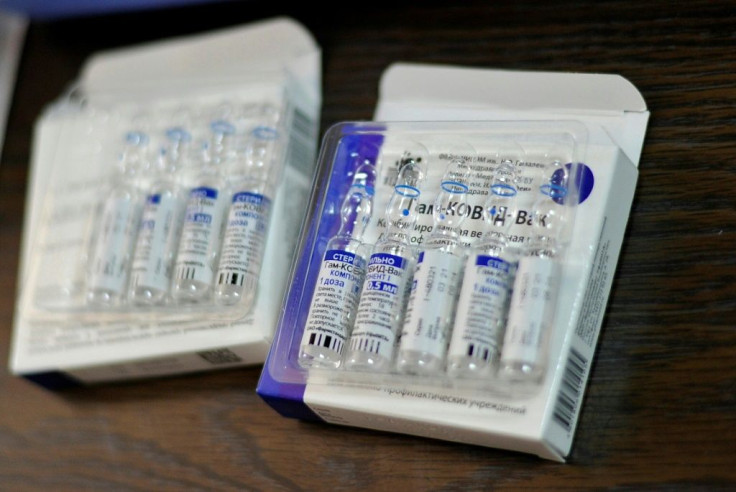Russian Vaccine Developer To Sue Brazil Regulator For Defamation
The developer of Russia's Sputnik V coronavirus vaccine said Thursday it would sue Brazil's health regulator Anvisa after it refused to import the jab.
"Sputnik V is undertaking a legal defamation proceeding in Brazil against Anvisa for knowingly spreading false and inaccurate information," the developer said on the official Sputnik V Twitter account.
Anvisa announced Monday that it had denied a request from several states to import Sputnik V, saying its experts had flagged "uncertainties" about the jab.
Anvisa did not release findings or cite specific information it determined was lacking.
But according to a slideshow uploaded online, the regulator's scientists made the decision on the basis that vaccine batches they tested carried a live version of a common cold-causing virus.
Sputnik V's developers said on Twitter that Anvisa had acknowledged making a mistake and had not tested the vaccine.
"Anvisa made incorrect and misleading statements without having tested the actual Sputnik V vaccine," the developers said.
The issue centres around an "adenovirus vector" -- a virus that normally causes mild respiratory illness but in vaccines is genetically modified so that it cannot replicate, and edited to carry the DNA instructions for human cells to develop the spike protein of the coronavirus.
This in turn trains the human system to be prepared in case it then encounters the real coronavirus.

The Sputnik V vaccine uses two different adenovirus vectors to accomplish this task, administered in two shots.
According to the slideshow, Anvisa scientists said they tested samples of the booster shot and found it was "replication competent" -- meaning that once inside the body, the adenovirus can continue to multiply.
They added that this had likely occurred because of a manufacturing problem.
Sputnik V's developers had earlier attacked the decision not to allow imports as politically motivated.
The Russian vaccine has been approved for use in at least 60 countries, including more than 10 in Latin and Central America.
But it has not yet been approved by the European Medicines Agency (EMA) or the United States' Food and Drug Administration (FDA).
Some Western countries have been wary of Sputnik V -- named after the Soviet-era satellite -- over concerns the Kremlin would use it as a soft power tool to advance its interests.
Moscow registered the jab in August before large-scale clinical trials, but leading medical journal The Lancet has since said it is safe and more than 90 percent effective.
© Copyright AFP 2024. All rights reserved.





















